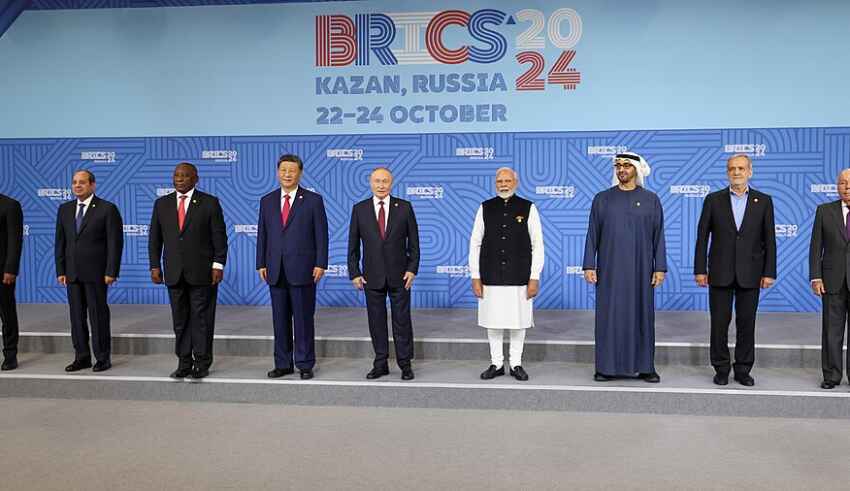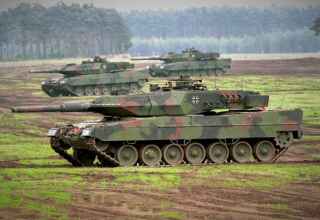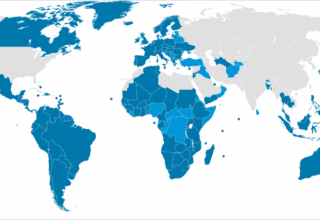
India’s economic rise has pushed the country to the front stage of the modern international landscape as it has emerged as a major geopolitical player while balancing relationships with both Western powers and BRICS. However, this is proving to be increasingly more challenging and complex due to the current geopolitical climate, which is shaped and influenced by economic and political rivalries, security concerns and shifting alliances. If India wants to be successful in being able to shape global governance and secure its strategic interests, it must continue to maintain this strategic middle ground. Therefore, it must lean on pragmatic and forward-looking policies which are essential to ensure that India’s rise remains sustainable and beneficial for both itself and the wider international community.
A major challenge for India is handling its growing interdependence with Western Economies while supporting endeavours and policies of its BRICS partner, in particular Russia and China. India currently benefits from technology transfers, defense cooperation and Western markets, since the European Union and the United States remain critical trading and investment partners. On the other hand, India depends heavily on Russia with regards to energy and defense capabilities as well having to engage with China in a number of initiatives developed by BRICS, regardless of the political tensions between both States. Despite India’s apparent non-aligned position regarding the broader geopolitical environment, the ongoing war in Ukraine is pushing the country to take sides as Western allies pressures it to reduce ties with Russia while India seeks to maintain energy security and defense supplies.
Moreover, India has gained a prominent leadership role amongst countries in the Global South, as it has positioned itself as a voice for the developing nations, advocating for fair trade policies, debt relief, and equitable global governance. During its tenure at the G20 presidency, India further pushed for inclusive growth and climate action while also reinforcing its role as a mediator between developed and developing economies. However, India must back these demands and requests beyond diplomatic rhetoric with real efforts and concrete financial and political action.
Notwithstanding its status as voice of the Global South, India is facing serious security concerns and uneasy strategic partnerships. In particular, India is currently in the midst of a potential conflict with China, as Border tensions and military confrontations in the Himalayas remain unresolved as well as China’s growing naval presence in the Indo-Pacific. These situations threaten India’s regional security interests, despite both countries being members of BRICS. By developing and fostering stronger military alliances with the US, Japan and Australia, India might be able to counterbalance China’s influence in the region. Nonetheless, India’s dependence on Chinese supply chains makes full economic decoupling unrealistic in the short term and, thus, it must also prioritize diversifying its trade partners while boosting domestic production to mitigate potential vulnerabilities.
Due to the delicate nature of the current geopolitical landscape and India’s difficult alliance and diplomatic ties, it is necessary that the country pushes for global governance reform. Firstly, given India’s growing role as representative of the global south, it should propose and encourage reforms in the International Monetary Fund and the World Bank to ensure greater representation for developing economies, while also reflecting the new economic realities. As mentioned earlier, India should also seek economic diversification. The increasing tensions between the West and some members of BRICS call for India to reduce economic over-reliance on both by diversifying trade partnerships with emerging markets in Africa, Latin America, and Southeast Asia, while parallelly increasing participation in regional economic frameworks like the Indo-Pacific Economic Framework to secure supply chain alternatives. Lastly, it is pivotal that India promotes and further develops its climate diplomacy and sustainable development strategies. It should secure green technology transfers as well as renewable energy partnerships to accelerate its transition to a low-carbon economy, which would assist India in becoming less energy dependent from other countries. Ultimately, by leading climate negotiations and advocating for fair climate financing, India could significantly enhance its economic and geopolitical standing.
To conclude, India’s rise as a global power hinges on its ability to balance strategic autonomy with active global engagement and in order to secure its future, it must push for international governance reforms, diversify economic ties, and strengthen regional security. By leveraging its leadership in the Global South and maintaining a pragmatic foreign policy, India can shape a multipolar world while safeguarding its own interests.
By The European Institute for International Relations















